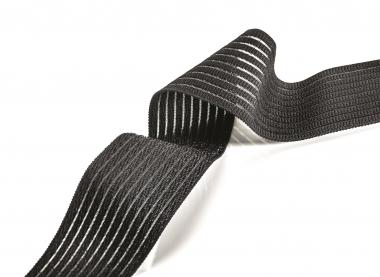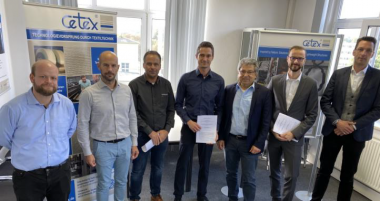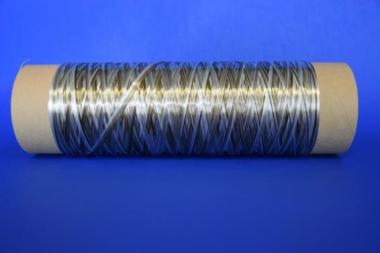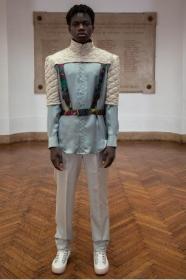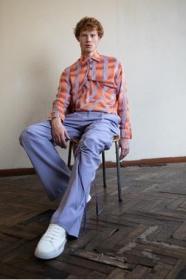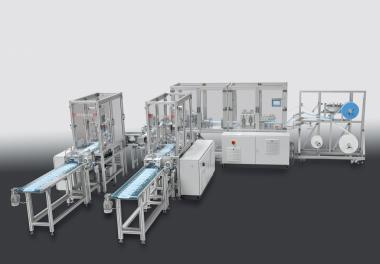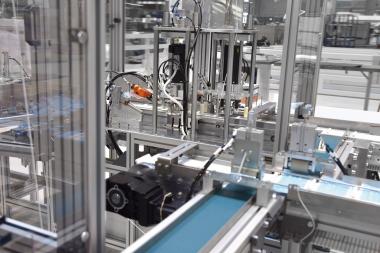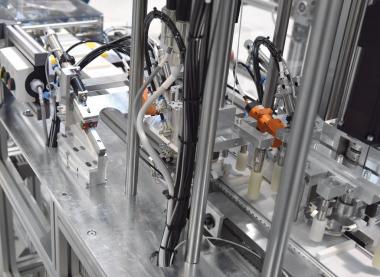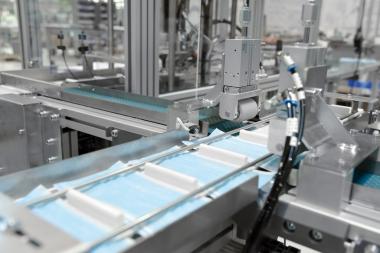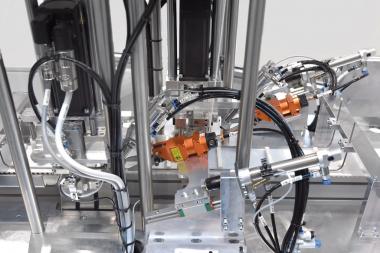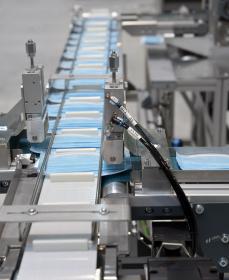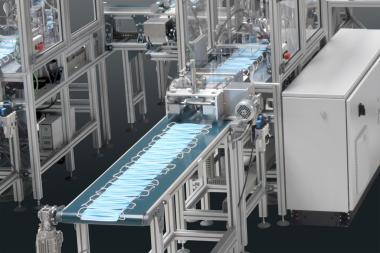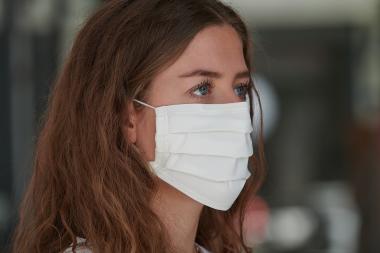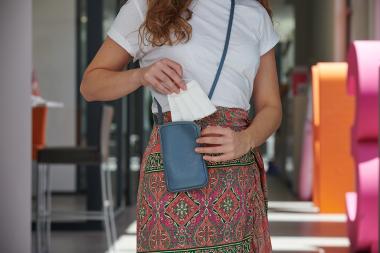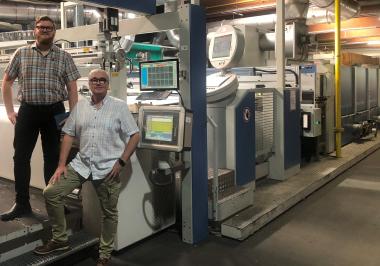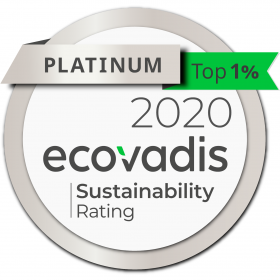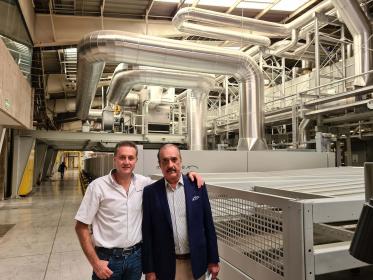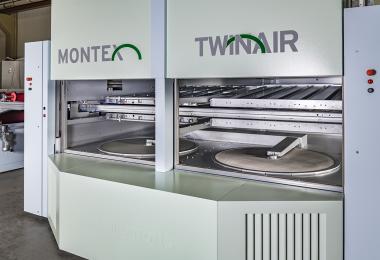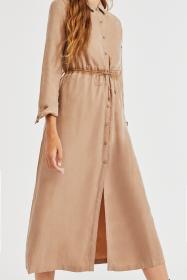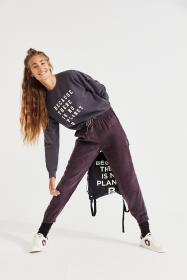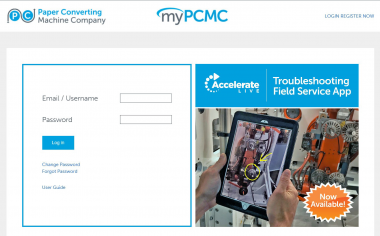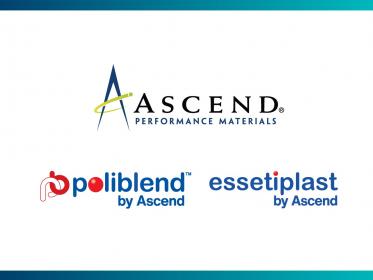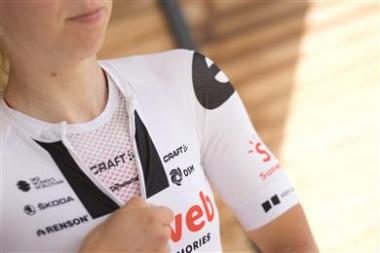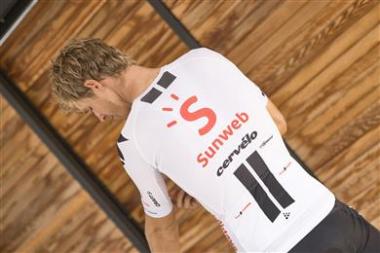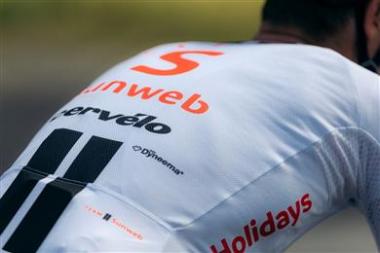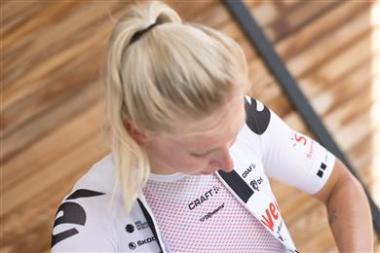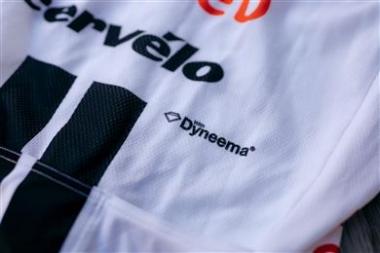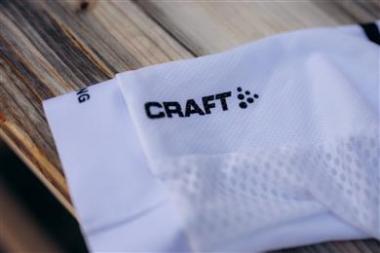JUMBO-Textil: Narrow textiles with a function
Technical textiles fulfil many functions: they hold, they lift, they fixate, they stretch – and they tension. In this function narrow textiles fulfil an important task in product development. And they offer significant advantages over metal or plastic tensioning devices such as springs, clamps or cable ties.
Properties
Textiles are light: a property that plays a central role in modern mobility. Textiles are flexible: from extremely high to extremely low elasticity: the force-elongation behaviour of elasticated narrow textiles can be precisely defined. Depending on the tensioning task to be performed. Textiles tension in tight packaging spaces: elastics can also be used where space is too tight for springs and clasps. Textiles are energy efficient: lightweight, with high tensioning force. Textiles are easy to handle: replace a connector spontaneously and without tools, quickly change the length or roll up and store a supply. And textiles are sustainable: natural fibres and rubber are natural and ecologically degradable raw materials; synthetic fibres can be completely produced from recycled materials.
Applications
Development teams in numerous industries leverage these properties for their products. For example, for flexible machine parts in mechanical engineering, for switch contacts in electrical engineering, for oscillation-capable locking systems in the construction industry, for noise- and vibration-free seating systems in the automotive sector or for grip rings in the toys industry.
Tasks
Particularly en vogue today, when we are spending more time than usual in our own homes: applications for narrow textiles in the furniture industry. They go far beyond the area of legacy home textiles: as tensioning elements in armchairs, sofas and chairs, as hinge solutions in cupboards, as fixation elements in extendable or folding tables. Narrow textiles are used for gripping tasks almost everywhere in the living room.
"JUMBO-Textil specialises in precisely implementing the individual requirements for defined force-elongation values of elasticated narrow textiles: we adapt the technical properties of our products precisely to the specific task and the respective raw materials," explains Werner Thiex, Sales Director Automotive. "Precise technical specification plus sustainable raw materials – this is a crucial combination in the 21st century".
stotz-design.com


